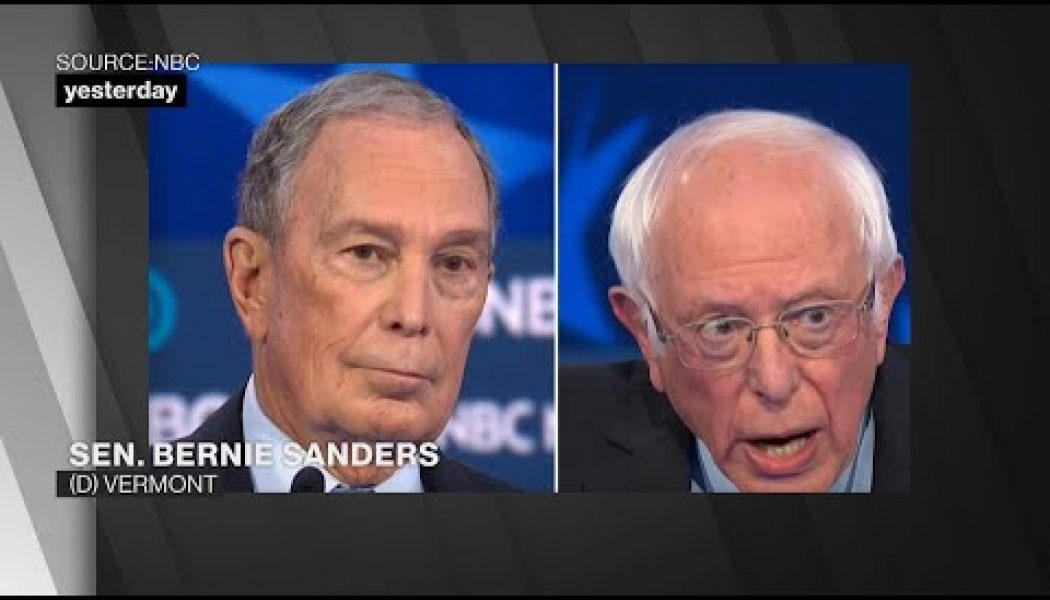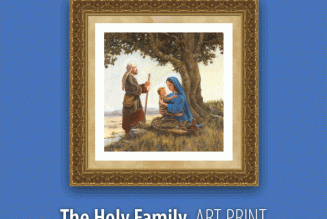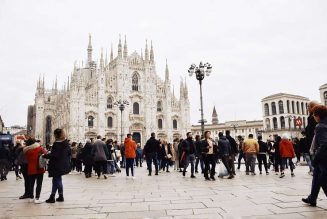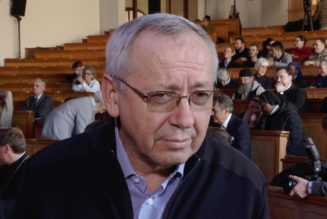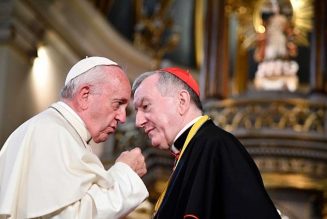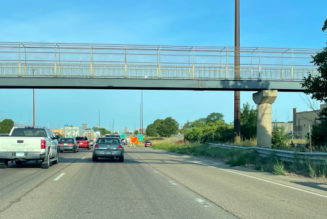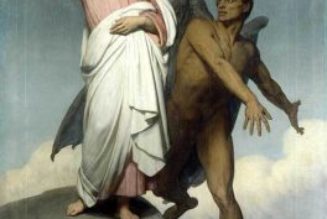Let’s say that you are the leader of a social-service program operated by African-American activists at a Pentecostal or evangelical megachurch in the Bible Belt. Or maybe you are the leader of a non-profit religious school operated by evangelicals, Catholics or Orthodox Jews.
What did you learn about religious liberty disputes that are crucial to the future of your faith-based work, if you watched that Nevada showdown for Democrats in the 2020 White House race?
To quote that classic Edwin Starr song — “Absolutely nothing!”
At the end of that slug fest, you may have been entertained or depressed. But it would be hard to say that you were joyful or hopeful. In other words, you didn’t feel the way blue-zip-code believers folks felt after the “gospel revival” sessions (a term used by The Washington Post) during the Oprah and Michelle Obama 2020 tour.
This was the territory that host Todd Wilken and I explored during this week’s “Crossroads” podcast (click here to tune that in). The goal was to explore the role that religious faith is playing in the current Democratic Party campaign and how that will affect an eventual showdown with President Donald Trump.
Let’s start with a flashback to that article about Oprah and Michelle Obama — “Washington Post says blue USA needs ‘a healer’: So Oprah and Michelle are in savior biz?” Here’s the Post thesis statement about this not-political (but not-religious, either) event:
The not-“Oprah 2020” event could have been a political rally from an alternate dimension where two of Blue America’s most beloved figures have teamed up to take back the country from President Trump. The Vision tour was, in fact, an event from this dimension, where Blue Americans, anxious and exhausted and restless, have directed some of that energy toward better governing their own bodies and minds.
That article was packed with references to “healing,” visions, yoga, meditation and some vague sense that — in the Trump era — many downcast Americans are looking for a “savior” (presumably of a political nature). They appear to be yearning for someone named Oprah or Obama 2.0.
What would have happened, I asked Wilken, if Barack Obama had walked onstage during this non-political, non-religious “gospel revival”? Todd said it would have been like “the second coming.” Amen, brothers and sisters.
What if the likely Democratic candidate, Sen. Bernie Sanders, had walked onto that stage?
Not quite the right style? Would he reach the same swing-voter territory that Oprah and the Obamas can touch, in the middle of the American religious scene (not to mention African-American churches)? There are millions and millions of centrist and even progressive Americans who remain quite traditional on doctrinal issues linked to their faith.
Thus, remember this display of Sanders’ approach to traditional faith? Here is a lengthy excerpt from one of my “On Religion” columns on this topic. The setting is a U.S. Senate budget committee hearing about the nomination of Russell Vought to serve as deputy director of the Office of Management and Budget.
<div class="sqs-block video-block sqs-block-video" data-block-json="{"blockAnimation":"none","layout":"caption-hidden","overlay":true,"description":{"html":"The Vermont senator blasted Russell Vought over his writings concerning Islam"},"hSize":null,"floatDir":null,"html":"\n","url":"https://www.youtube.com/watch?v=SPD9aiLKKoc","width":854,"height":480,"providerName":"YouTube","thumbnailUrl":"https://i.ytimg.com/vi/SPD9aiLKKoc/hqdefault.jpg","resolvedBy":"youtube"}” data-block-type=”32″ id=”block-yui_3_17_2_1_1582230759086_230871″>
Sanders questioned a Vought article about a Wheaton College controversy, in which a professor made headlines with her claims that Christians and Muslims worship the same God. As a former Wheaton professor, Vought argued that salvation was found through Jesus – period.
Thus, Sanders said: “You wrote, ‘Muslims do not simply have a deficient theology. They do not know God because they have rejected Jesus Christ, His Son and they stand condemned.’ Do you believe that that statement is Islamophobic?”
The nominee repeated his defense of this ancient Christian doctrine. Sanders kept asking if Vought believed that Muslims “stand condemned.”
Once again, Vought said: “Senator, I’m a Christian …”
Sanders shouted him down: “I understand you are a Christian! But this country is made of people who are not. … Do you think that people who are not Christians are going to be condemned?” Sanders concluded that he would reject Vought because, “this nominee is really not someone who this country is supposed to be about.”
Afterwards, Sanders drew criticism from those arguing that – rather than defending tolerance – he had attacked Article VI of the U.S. Constitution, which says “no religious Test shall ever be required as a Qualification to any Office or public Trust under the United States.”
The key was that Sanders was asking a purely doctrinal question, even though no one had accused Vought — in his public-square work — of any form of discriminatory behavior towards believers in other faiths.
How about former Mayor Michael Bloomberg? Would he have fared better, in terms of style and content, facing the Oprah-Obama congregation, as well as Democrats who frequent pews? He has, of course, a complex history with African-Americans, in general. And his personal style isn’t exactly warm and joyful.
But what about matters of faith? Please think back to my question at the top of this post.
What about Bloomberg’s approach to church-state issues affecting churches that have rented weekend spaces in New York City schools? Remember that many of these start-up churches are African-American, Latino or linked to other ethnic communities.
The following is from a 2012 GetReligion post about the churches-in-schools fight, with this headline: “That missing church-state angle in NYC.”
On one side [in media reports] are those who favor the separation of church and state. On the other side are people who — it’s hard to be specific about this — want to rent government space instead of space elsewhere.
So this is a fight between those who favor church-state separation and those who, apparently, do not.
The problem is that people on both sides are concerned about the separation of church and state. The legal teams behind the churches and their claims are arguing that the New York school executives are, through their actions, becoming unnecessarily entangled in religion by singling out religious worship as a uniquely dangerous form of speech and symbolic activity. The schools are thus violating the “equal access” principles that have been upheld in other parts of the nation. These legal guidelines were produced by a massive coalition of liberal and conservative religious leaders back in the right-wing days of the Clinton White House. …
In other words, if would violate church-state separation for school officials to treat religious groups BETTER than other non-profits. However, it would also violate church-state separation for school officials to treat religious groups WORSE than other non-profit groups by acting as if religious speech and religious actions are more dangerous than other forms of speech and other actions by comparable groups (think labor unions, chess clubs, art classes, book circles, etc.).
The goal is to avoid “viewpoint discrimination” and to treat various non-profits the same. The goal is equality before the law, in other words.
How will this part of the Bloomberg church-state agenda play in African-American and Latino pews, as well as Catholic social agencies and other settings in key swing states?
It’s one of the big questions of the year: Can Bernie or Bloomberg — both men are very secular Jews — fire up the Oprah-Obama congregation? You know that Democratic Party insiders are thinking about this.
